
Chartbook 320 Squeaking it out in Brandenburg: Germany's democratic establishment on a knife's edge.
The results in the Brandenburg election that were declared last night brought a dramatic end to three nerve-wracking political races in East German regional elections that have dominated the politics of Europe’s leading economy for most of this year.
The story that has dominated the summer is the rise of the far-right AfD from the fringe to the center of German politics. Across East Germany the AfD has surged to close to 30 percent of the vote. In Saxony the mainstream conservative CDU managed to hold the AfD in second place. In Thuringia the AfD actually managed to come first. The election in Brandenburg was particularly important because, whereas in Saxony and Thuringia Chancellor Scholz’s SPD was consigned to near insignificance, in Brandenburg the SPD has been the leading political force since reunification.
Since 2019, Dietmar Woidke, the popular SPD state premier, has led a coalition of SPD, CDU and Greens, a so-called “Kenya coalition”. Personally he enjoys very high approval ratings. An electoral defeat for the SPD in Brandenburg would have national repercussions.
Surrounding Berlin, Brandenburg is no backwater. Though there was out-migration following the fall of the wall, since 2010 Brandenburg’s population has been increasing. Unemployment which in the early 2000s was over 20 percent, fell to just 5.9 in 2023, barely above the average in West Germany.
But, fed by resentment over East German disadvantages, migration, COVID policy and government policy towards the war in Ukraine, the AfD has mounted a strong challenge.
To get a flavor of the AfD’s self-presentation check out this political spot (generated entirely by AI) that was promoted by the AfD’s Brandenburg branch. See also this discussion in Die Zeit.
Perhaps unsurprisingly in light of this imagery the AfD leadership in Brandenburg is regarded by the German domestic security services as a right-wing extremist threat to the German constitution. And it is not just imagery that counts. AfD candidate Lena Kotré handed out self-defense weapons.
Rather than deterring voters, this radical rhetoric struck a chord. In the autumn of 2023 the AfD was credited with a large lead in the polls. In June 2024, the SPD did horribly in Brandenburg in the European elections, scoring barely 13 percent. It was only in July 2024 that the SPD began to rally, squeaking out a narrow victory.
As in Saxony and Thuringia, the rise of the AfD and the struggle of the mainstream parties to contain it has injected a real urgency into German democracy and led to a notable surge in voter participation. On Sunday, the 72.9 percent participation rate was the highest in Brandenburg’s history since unification. It contrasts sharply with the election in 2014 when less than half of the electorate turned out.
Source: Tagesschau
But we should be careful not to misinterpret this as a “democratic rally against the right”. In fact, it was the AfD that benefited most from a surge in new voters.
The AfD garnered 50 percent more new voters than the SPD, though the SPD ended up leading in the overall poll. The AfD’s strong support amongst new voters should not be surprising since the AfD is the party that attracts strongest support amongst those who are generally least likely to vote i.e. the young and the poor, working-class and less well educated voters.
Holding the AfD in second place would have been easier without the democratic mobilization. What gave the SPD its lead was the rallying of existing centrist voters around State Premier Dietmar Woidke who raised the stakes by letting it be know that he would no longer continue in office if his party was out-scored by the far-right. At the same time he called for a Danish-style hardening of policy on migration and asylum.
If that was intended as an opening to the right and particularly to the CDU, it brought few dividends. As the race heated up, the three party coalition around Woidke of SPD, CDU and Greens broke down very unevenly. CDU voters defected in the main not to the SPD but to the two “East German parties” i.e. the AfD and Wagenknecht’s movement, both of which promise a hard line on migration. The key to the SPD’s victory were its ability to draw in votes from the Greens and Die Linke who opted for “democracy” and against the AfD and both of which continue to uphold a relatively liberal line.
One strong hypothesis is that it is commuters who have moved to Brandenburg from Berlin who played an important part in securing district level SPD victories by shifting from Green to SPD.
Wagenknecht’s movement scored another remarkable success entering the parliament ahead of the CDU. It was the only party that can claim to have drawn any votes away from the AfD. But, far from being an AfD-killer, above all the Wagenknecht movement drew votes from Die Linke, non-voters and the SPD. Having consolidated and somewhat expanded die base of what used to be Die Linke, Wagenknecht’s movement will be hard to avoid at least as a tacit coalition partner.
Overall the Brandenburg result will come as a huge relief to the SPD. But it is anything but an all-clear for German democracy. It will take months for the full effect of the three elections to work itself out. But one striking result is that whereas left-of-center political forces effectively rallied around the SPD , in Brandenburg the CDU on the center-right offered no effective resistance to the AfD surge. This is a significant setback for the CDU and their national leadership under Friedrich Merz. A shift is clearly on the cards in Berlin politics, and various coalition possibilities can be read out of the national polling. But none of them arouse any real enthusiasm or offer the prospect of a major shift in policy. The profoundly troubling fact is that the most dynamic force in German politics right now is on the far-right, in the form of the AfD. Its agenda is dystopian and the best the other parties seem to be able to offer is the promise to keep it out of power.
I love writing Chartbook. I am delighted that it goes out for free to tens of thousands of readers around the world. What supports this activity are the generous donations of active subscribers. Click the button below to see the standard subscription rates.




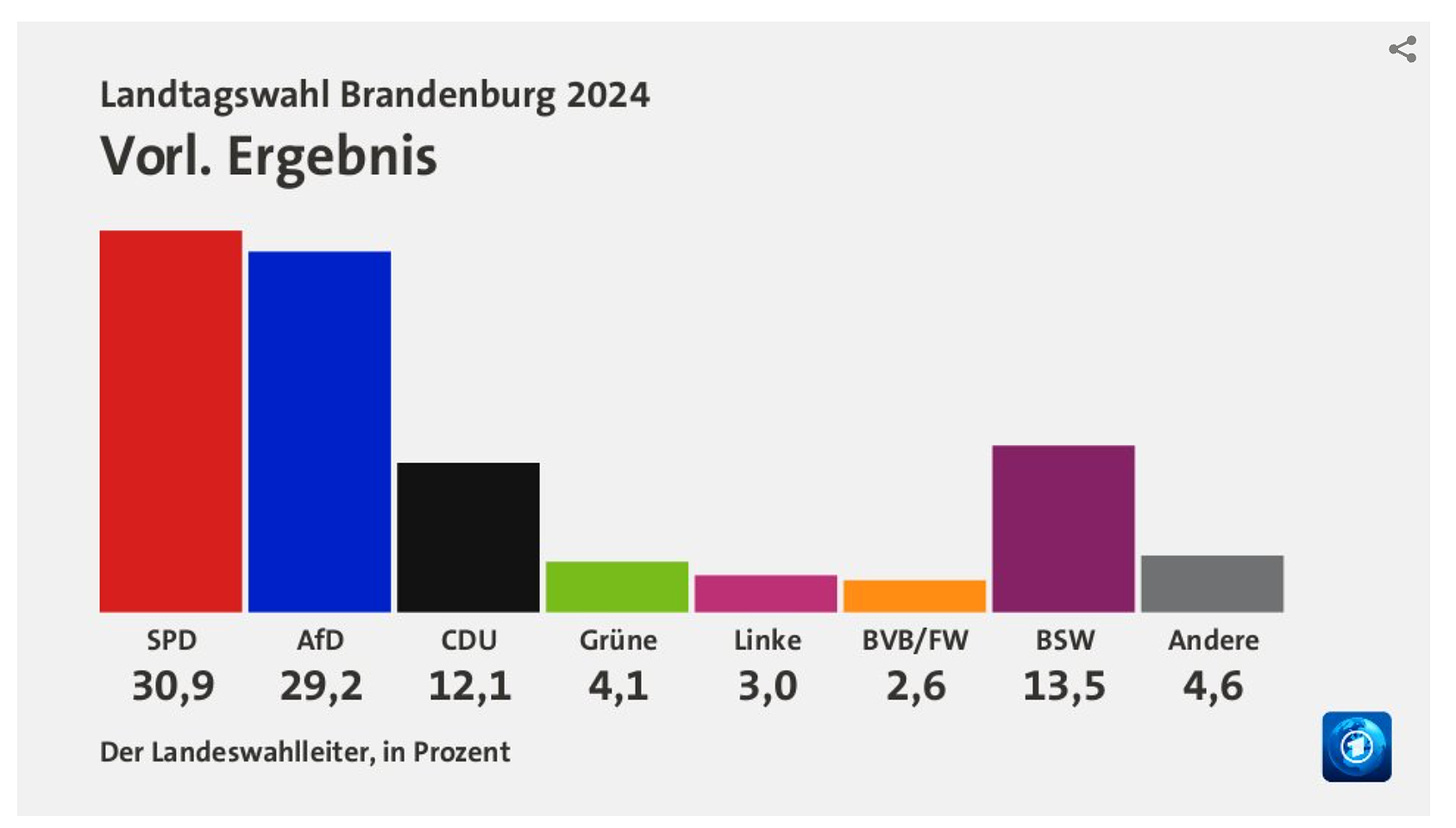
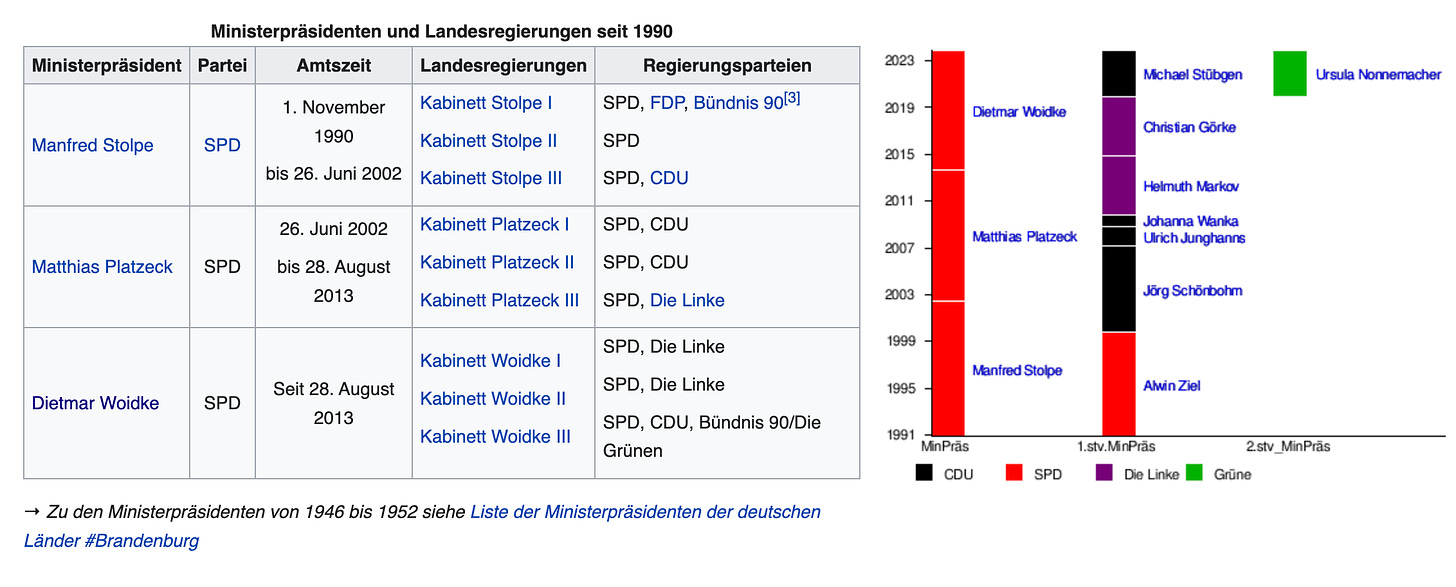
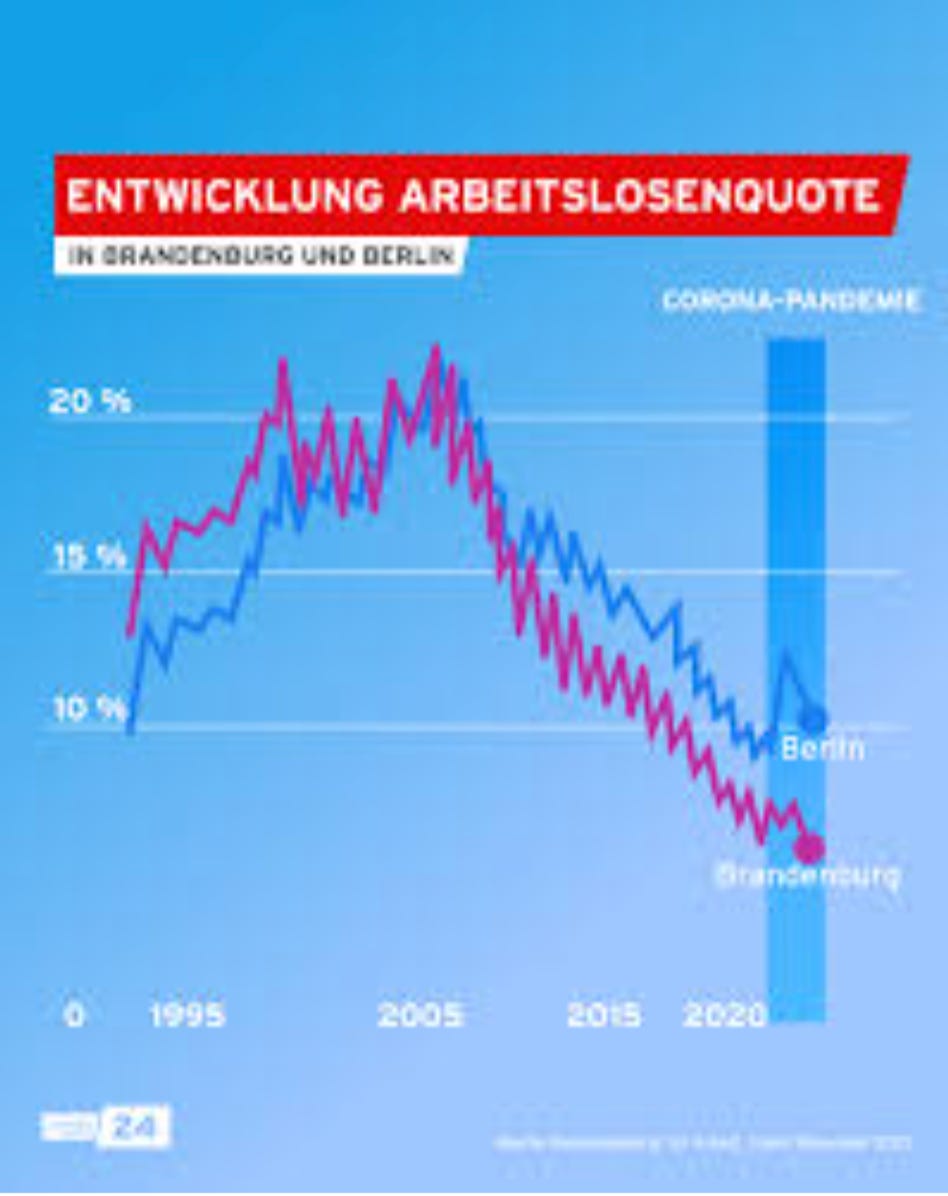



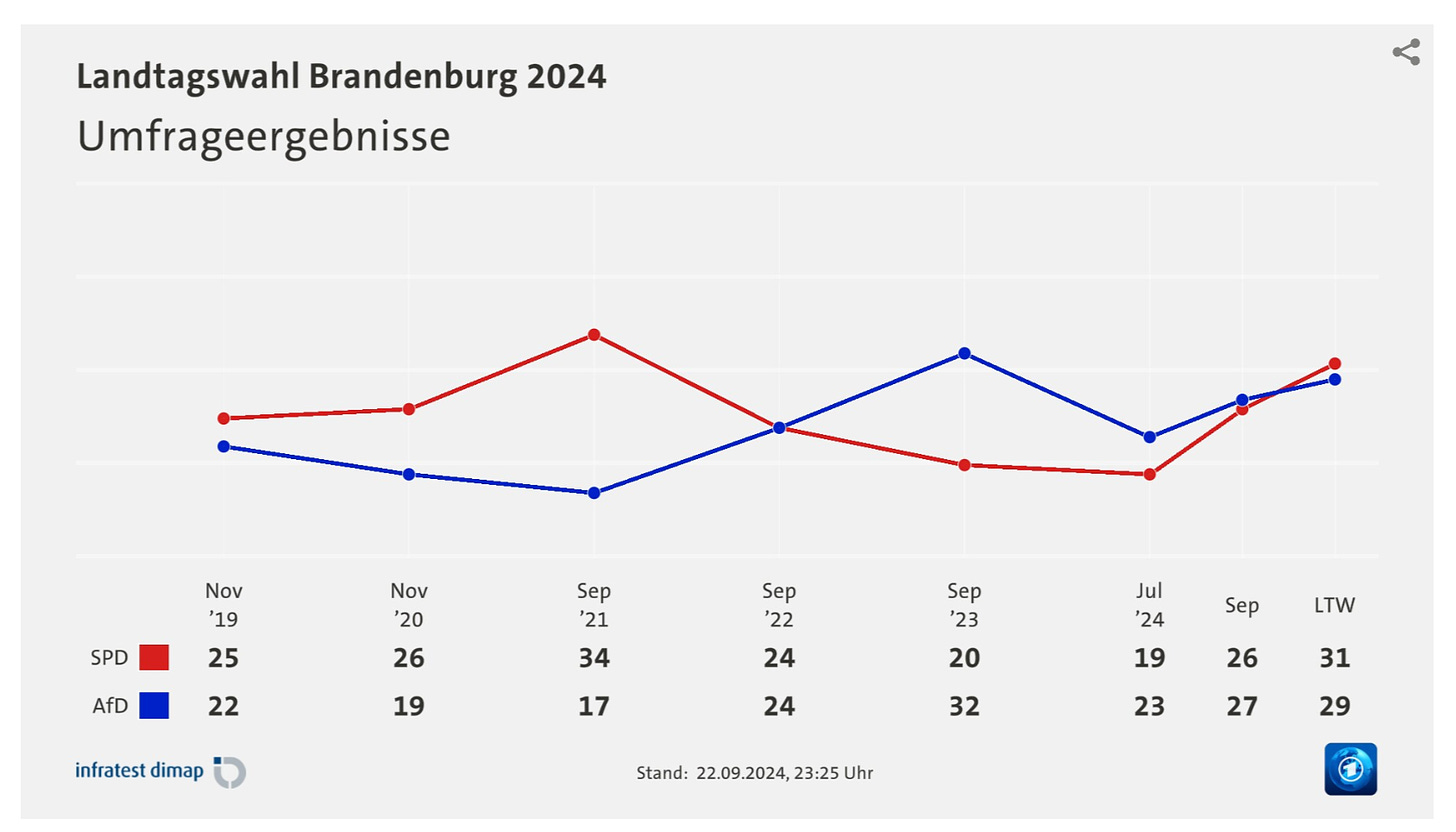
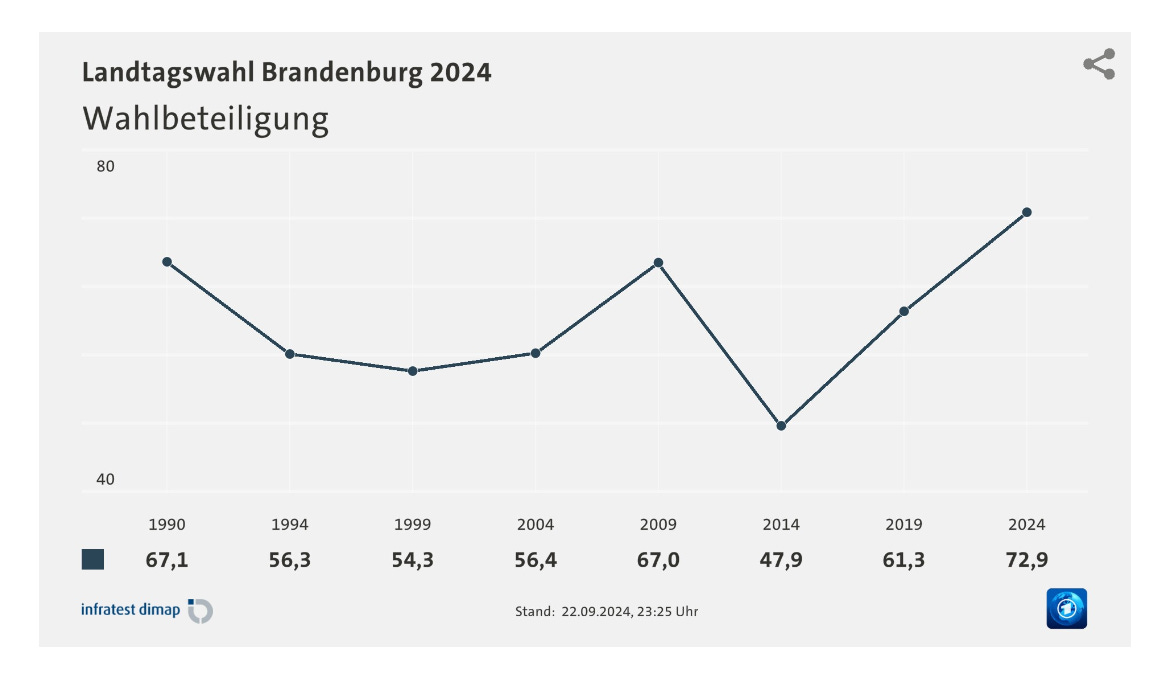
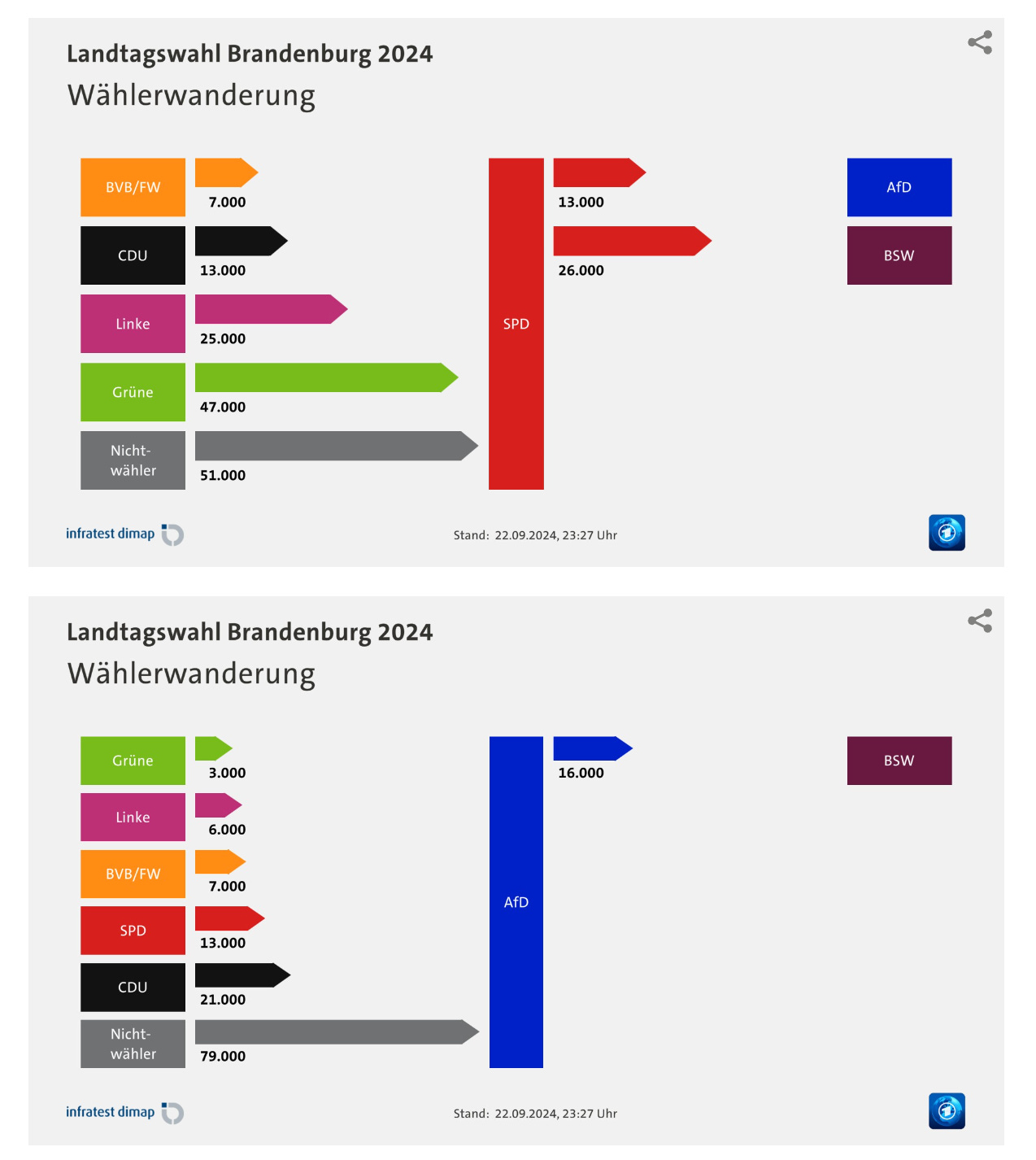
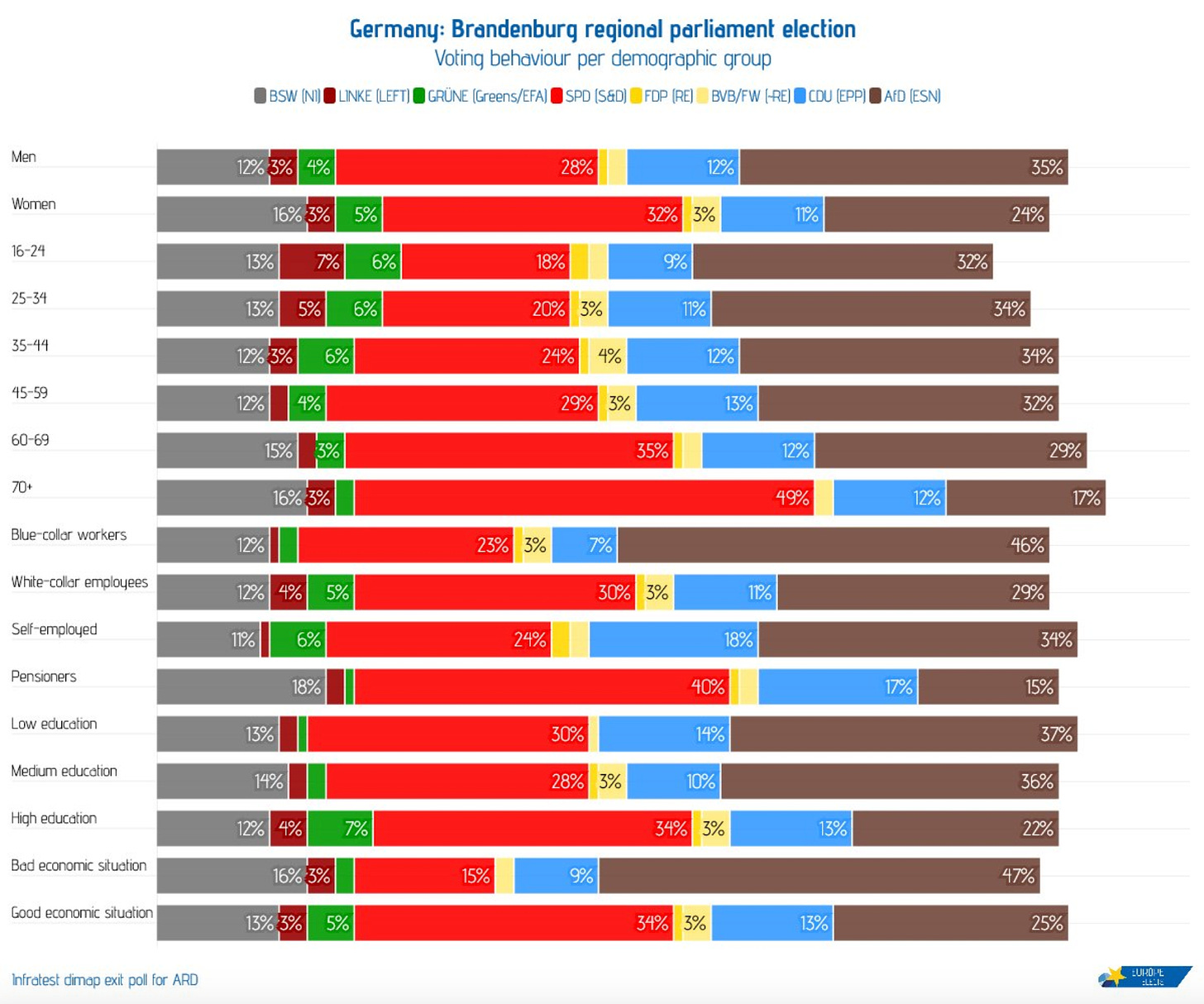
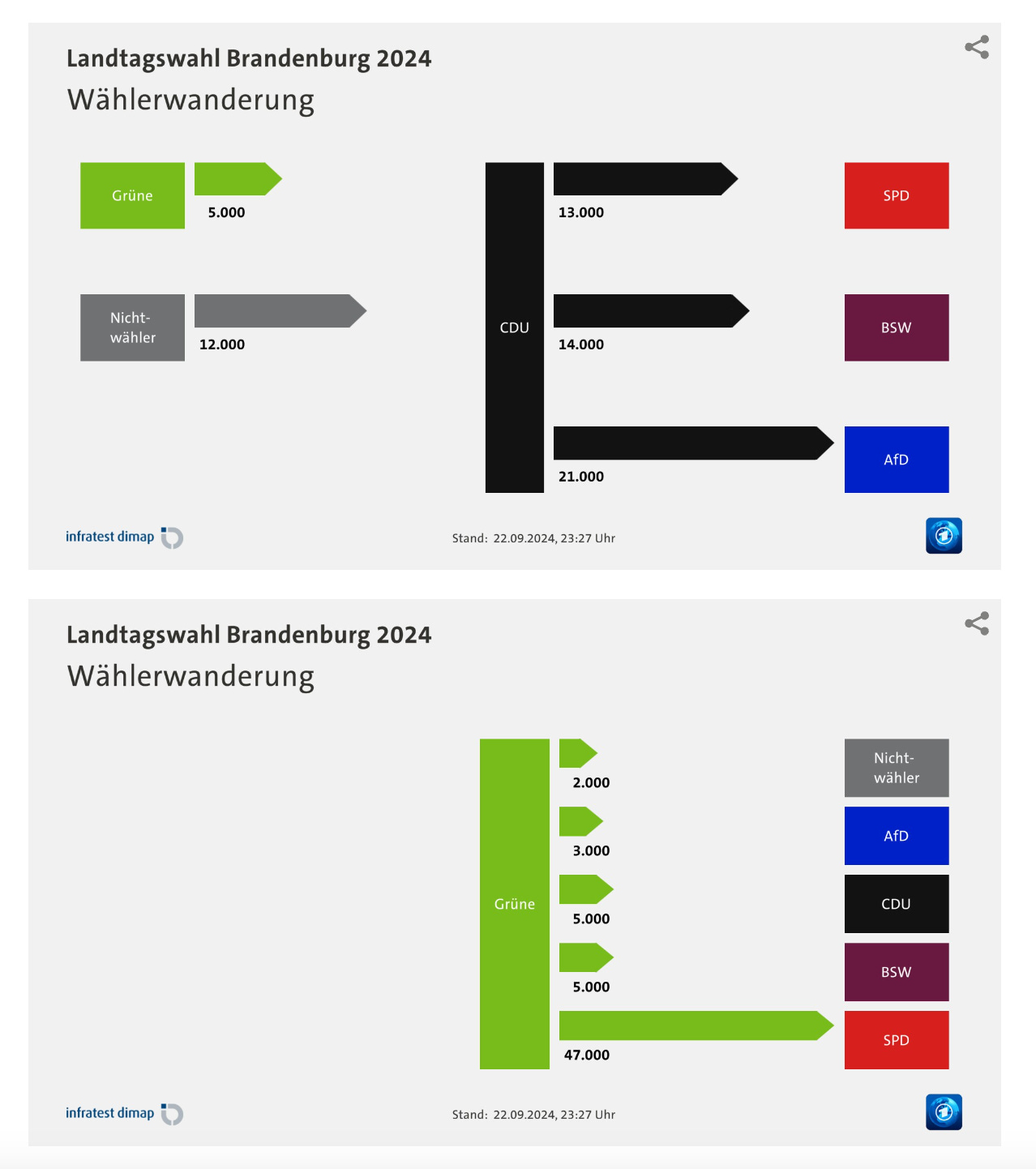
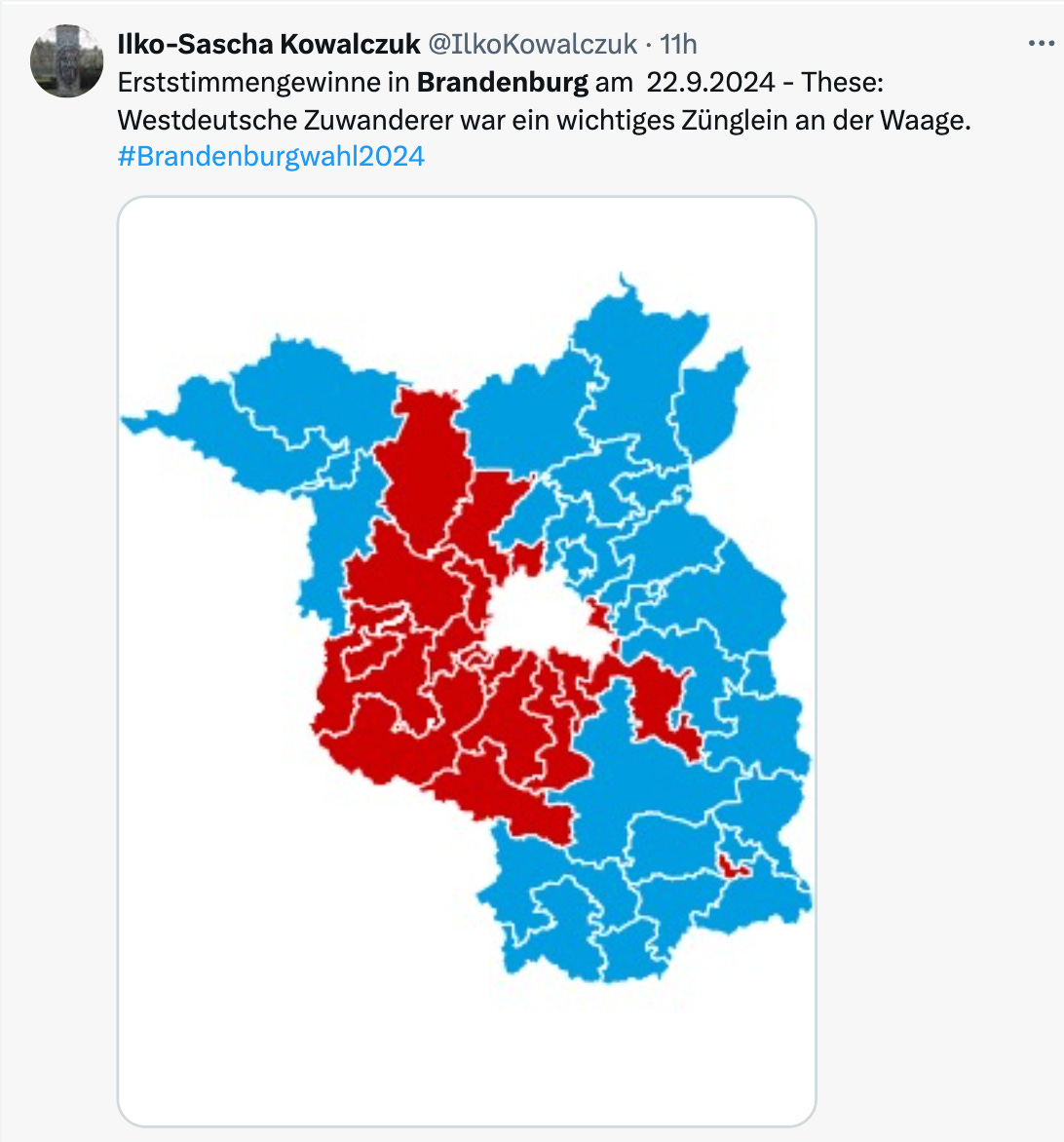
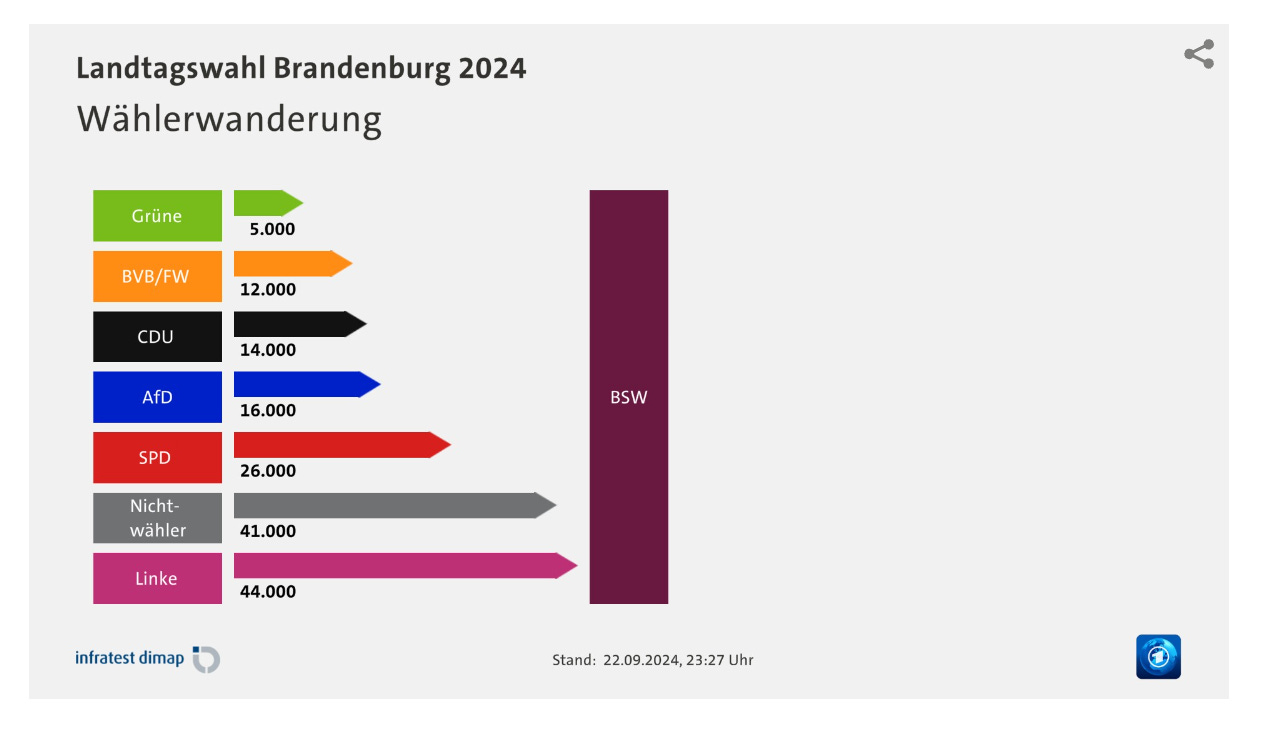





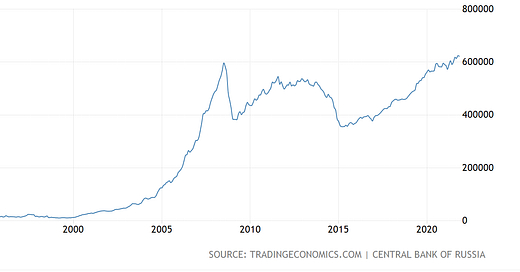



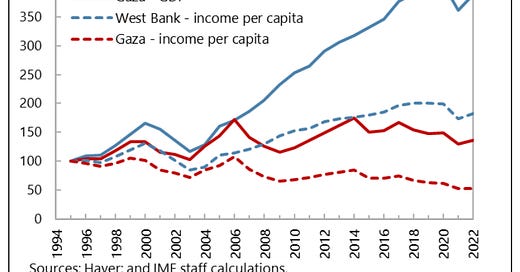

In terms of the AfD being a threat to democracy, I have not followed their statements closely but also regard banning political parties garnering 30%+ of the vote in various states as undemocratic (I am not straw manning here since that has been discussed in Germany).
I also suspect that the AfD would be much less of a threat to democracy than Macron has been to France considering he nominated a Prime Minister from a party that received than 5% of the votes in the most recent election.
A very interesting read, I don't really pay much attention to political parties that aren't in my own country, after reading this I think maybe I should.